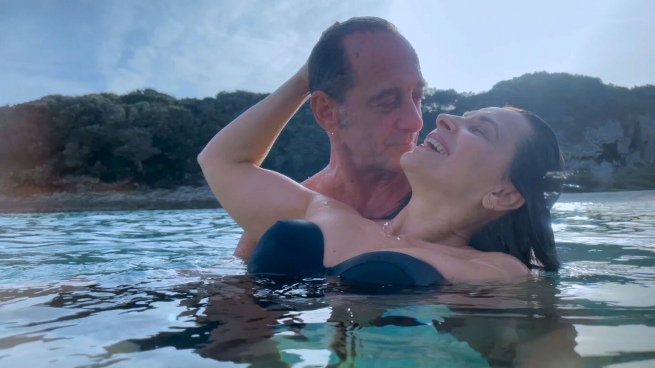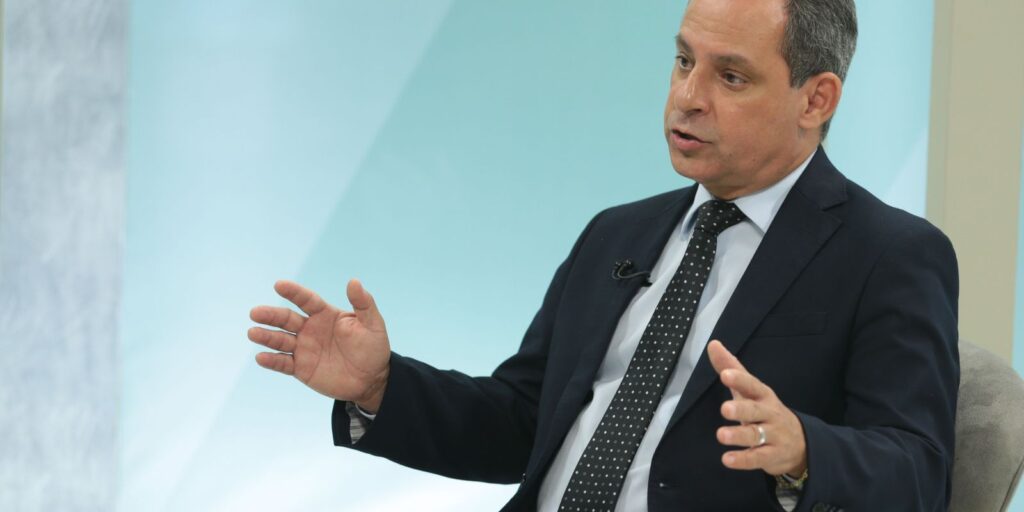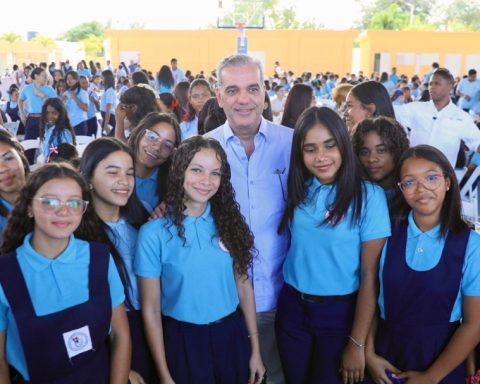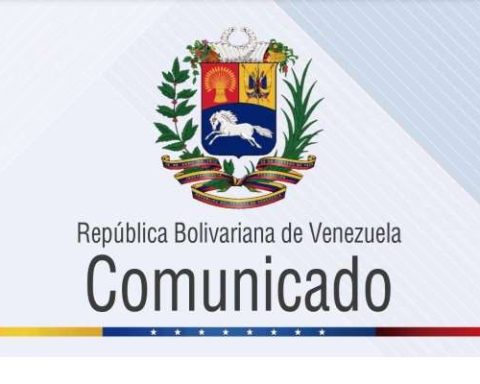After two editions hit by the pandemic (the one in 2020 was canceled and the one in 2021 was mostly virtual), number 23 -which takes place from April 19 to May 1– It will completely recover face-to-face attendance in 15 rooms located mainly in the center of the city of Buenos Aires and with very accessible tickets at 150 and 100 pesos. But in addition, the alternative of seeing a significant part of the programming will be maintained (223 of the 290 scheduled films) on the streaming platform Vivamos Cultura (https://ciclosyfestivales.vivamoscultura.buenosaires.gob.ar/).
Beyond the Opening Movie (“Little Flower”by Argentinean Santiago Mitre) and the closing one (“Viens, je t’emmène”, by the Frenchman Alain Guiraudie), the programming has a diversity and eclecticism that allows it to range from the most radical of auteur cinema to exponents of the most varied genres, musical documentaries or restored classics. From this endless offer, we highlight the following 15 titles:

“To Chiara”
(Italy-France), by Jonas Carpignano (Becoming Great section). Italian director (born in New York) closes his Calabrian trilogy started with “Mediterranean” (2015), about a group of African refugees; Y “To Ciambra” (2017), about a community of gypsies, with an imposing and shocking film that goes from the familiar to the thriller about the Reggio Calabria mafia (the ‘Ndrangheta). The protagonist is the fifteen-year-old Chiara (Swamy Rotolo, extraordinary), who already from the title assumes the leading role and the point of view as a teenager who goes in search of her father, a lovable family man, but also a powerful drug trafficker. A film that exudes narrative and dramatic power, naturalness, credibility and a fascinating and moving humanism.
“Camouflage”
(Argentina), by Jonathan Perel (Argentine Competition). The director of “The property” (2010), “17 monuments” (2012), “Toponymy” (2015) and “Corporate responsibility” (2020) built a documentary with some elements close to fiction with Félix Bruzzone, renowned writer and enthusiastic runner, as the absolute protagonist. Bruzzone lived for a long time in a house very close to the Campo de Mayo military base, initially unaware that there, in the clandestine center known as El Campito, he was Marcela, her missing mother. From that coincidence?, he begins to investigate -on camera and from the voiceover- in his own history, in that of the place and that of the people who frequent it in a film with multiple intimate, political and historical implications. .
“Great Freedom”
(Austria-Germany), by Sebastian Meise (Romances section). Awarded at festivals such as Cannes, Seville, Viennale and Torino, this film describes the harrowing story of Hans Hoffmann (the extraordinary Franz Rogowski, previously seen in “Victoria”, “Transit” and “Undine”), a survivor of the concentration camps who spends more time in prison than outside it for the mere fact of being gay. It is that until 1969 homosexuality was not only illegal but also strongly persecuted in Germany and Austria, for which the nefarious Article 175 was applied to them, which punished sodomy in the German penal code since 1871 and which was widely used by the Nazi regime . The story, which is basically told in three times (1945, 1957 and 1968), is as disturbing as it is moving.

“Avec amour et acharnement”
(France), by Claire Denis (Careers section). The French director of films such as “Beautiful task”, “35 rhums” and “A beautiful inner sun” works again with both Juliette Binoche and Vincent Lindon in a film about jealousy and temptations within a long-standing marriage that enters into crisis with the appearance of a third party in contention (Gregoire Colin). The film earned Denis the award for Best Director at the recent Berlinale.
“The Novelist’s Film”
(South Korea), by Hong Sangsoo (Trajectory Section). Prolific and fascinating, this South Korean filmmaker won the Grand Jury Prize at the Berlin Film Festival for this black and white feature film that seems like one more episode in his long saga of artist stories (here is a filmmaker and a writer) in the midst of their artistic tribulations and emotional anguish.

“Happy Together”
(Hong Kong), by Wong Kar-wai (Rescue section). On May 17, 1997, this film about the tortured story of (dis)love between Yiu-Fai (Tony Leung) and Po-Wing (Leslie Cheung) premiered at the Cannes Film Festival. About to turn 25, it is about a cult film among international cinephiles and even more so among Argentinasince few directors managed to portray a Buenos Aires as beautiful, lyrical and strange as Wong Kar-wai shooting in La Boca or San Telmo.
“Sis dies corrents”
(Spain), by Neus Ballús (International Competition). After “La Plague” (2013) and “Marta’s Journey” (2019), this Catalan director tells the story of Pep (Pep Sarrà), who is about to retire from a mini home repair service company. Much to his chagrin, Valero (Valero Escolar) takes Moha (Mohamed Mellali) for a trial period, a young Moroccan immigrant who is simultaneously trying to learn Catalan and integrate. Tensions between the manager, a lovable but very irritable and prejudiced guy, and the well-meaning but inexperienced apprentice, do not take long to appear.
The daughter of a plumber, Ballús decided to build a fiction based on real stories and characters; that is, working with non-actors, ordinary people who play themselves on screen. The result is a muted comedy that bets on the vindication of the working class, of those anonymous, simple and noble beings (even with its contradictions and miseries) along the lines of Ken Loach’s cinema.
“private desert”
(Brazil-Portugal), by Aly Muritiba (Romances section). The director of “Para minha amada morta” (2015) and “Ferrugem” (2018) filmed a strange and emotional love story between two very dissimilar men that flows naturally and manages to turn an old song like Bonnie Tyler’s “Total Eclipse of the Heart” into a genuinely moving musical motif.
“The Card Counter”
(United States), by Paul Schrader (Trajectory Section). At 75 years old, the legendary American screenwriter and director ratifies the good time he is going through after “First Reformed” (2017) with the story of William Tell (Oscar Isaac), a former military man and current professional poker player whose meticulous and obsessive life falls apart when he is approached by Cirk, a young man who seeks his help to get revenge on a colonel. Genre cinema and political cinema in a disturbing and existentialist film with an air of Robert Bresson.
“A-ha: The Movie”
(Norway-Germany) by Thomas Robsahm (Music section). With more than 40 years of experience the norwegian trio made up of Morten Harket, Magne Furuholmen and Pål Waaktaar-Savoy had its moment of glory in the ’80s with a hit like “Take on Me”. However, far from celebrating (only) the validity and success (sold over 50 million records, they played twice at Rock in Rio, they wrote a song for the Bond saga as “The Living Daylights” and in a concert in Berlin they called 200,000 people in 2005), the film shows them something like united by convenience, putting up with each other because they can’t there is another. In fact, they live in different cities, they record many times separately, they have individual dressing rooms and they only meet again on stage. It is true that towards the end they give away some testimonials (each one on their own, of course) that claim a certain respect for their peers, but there is something strangely linked to a certain “bad vibe” that makes this anti-rockumentary fascinating and morbid.
“The Big Move”
(Bolivia), by Kiro Russo (International Competition). This second feature film Bolivian director trained in Argentina It can be seen as a kind of continuation of his acclaimed debut feature “Old Skull” (2016) to the point that both share one of the characters like Elder Mamani. But we are no longer inside a coal mine but outside for an urban symphony of La Paz and the anonymous beings that run through it shot in super 16 millimeters. Kiro Russo’s cinema continues to take us through unique and fascinating universes.
“Small, Slow But Steady”
(Japan-France), by Shô Miyake (Trajectory Section). Although it has connections with other films about boxing such as “Rocky” and “Million Dollar Baby”, the new film from the director of “Playback” and “And Your Bird Can Sing” moves away from the epic to embrace a more intimate tone in the story of overcoming a young deaf boxer who alternates between the rings and the responsibilities that his belonging to the working class implies.
Three classics of Argentine cinema
“Prisoners of the earth”, “The odd number” and “Bolivia”: What do a film of 1939 directed by Mario Soffici and starring Ángel Magaña, Francisco Petrone, Elisa Galvé, Raúl de Lange and Homero Cárpena; one of 1962 shot by Manuel Antín with Lautaro Murúa, María Rosa Gallo and Sergio Renán; and one of 2001 filmed by Israel Adrián Caetano? In principle, that they are key films in their respective times and, of course, that they can be (again) enjoyed in eye-catching black and white thanks to restored copies.


















